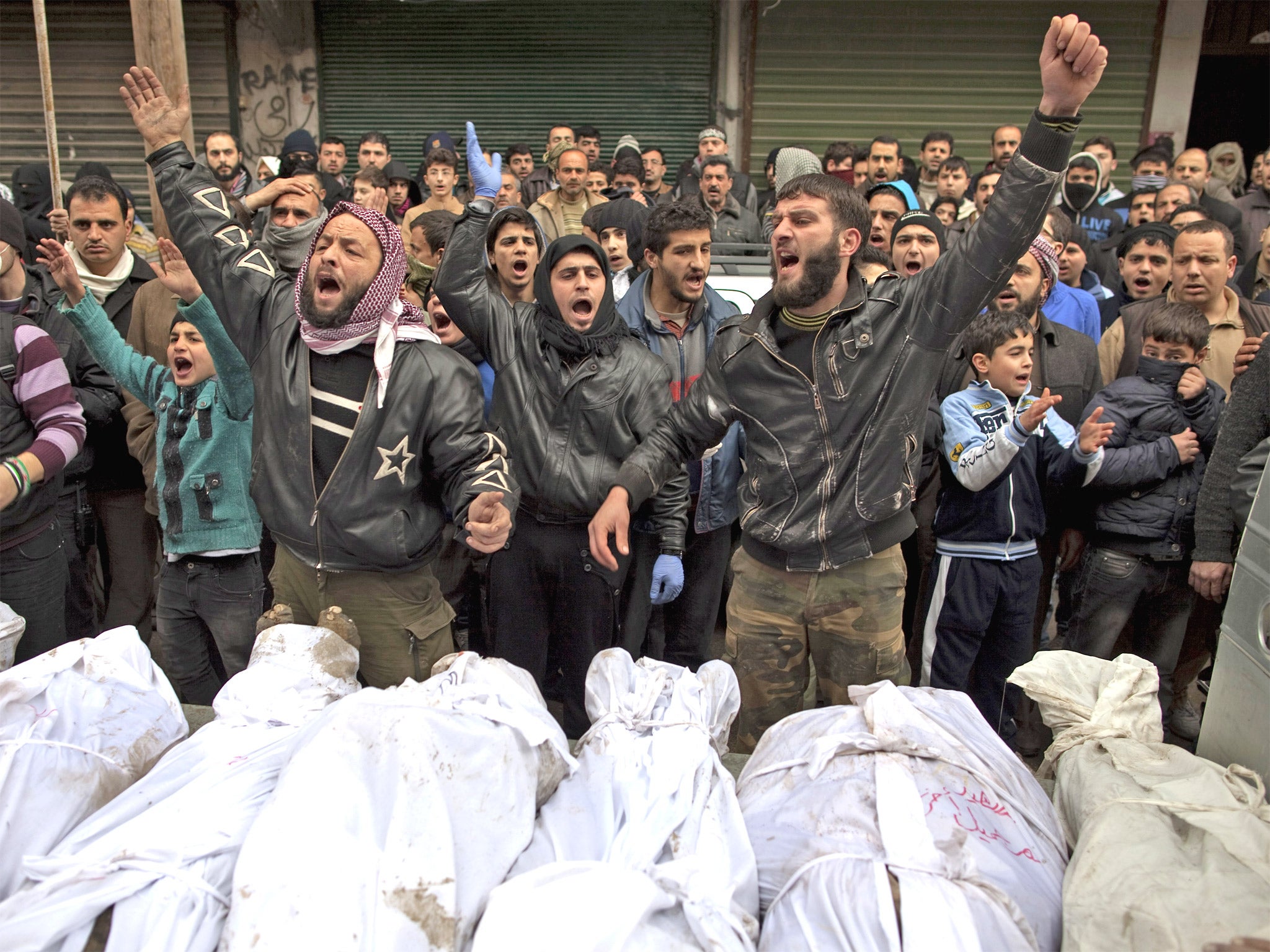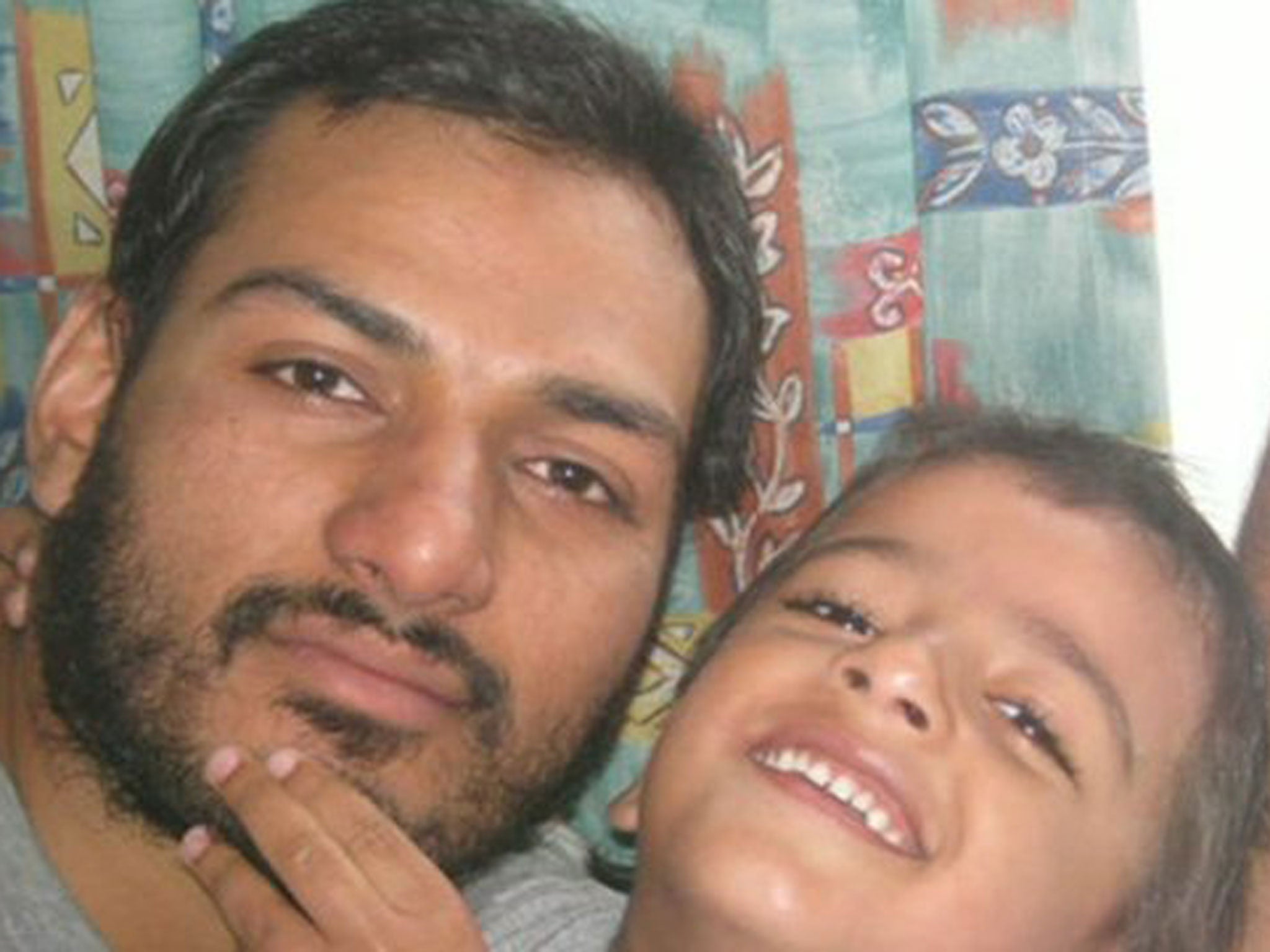The death of Dr Abbas Khan shows how Syria's President Assad shares power with ruthless and erratic henchmen
From child torture to sarin gas, the security services’ methods have dictated the war

Your support helps us to tell the story
From reproductive rights to climate change to Big Tech, The Independent is on the ground when the story is developing. Whether it's investigating the financials of Elon Musk's pro-Trump PAC or producing our latest documentary, 'The A Word', which shines a light on the American women fighting for reproductive rights, we know how important it is to parse out the facts from the messaging.
At such a critical moment in US history, we need reporters on the ground. Your donation allows us to keep sending journalists to speak to both sides of the story.
The Independent is trusted by Americans across the entire political spectrum. And unlike many other quality news outlets, we choose not to lock Americans out of our reporting and analysis with paywalls. We believe quality journalism should be available to everyone, paid for by those who can afford it.
Your support makes all the difference.Why did Dr Abbas Khan die? Nobody takes seriously the obvious lie that he committed suicide four days before he was to be released from prison. Who gave the orders for his murder? And why?
It would be difficult to think of a more self-destructive act by the security services of the Syrian government and leads to questions about who really holds power in Damascus. Just at the moment when President Assad’s government is seeing the first signs of being reengaged by the US and West Europeans there is an atrocity for which it will be blamed.
Napoleon famously said that battles go to those who make the least mistakes and recently the Syrian opposition has been making more mistakes than the government. Western governments have been appalled to see al-Qa’ida affiliates and equally sectarian Sunni brigades backed by Saudi Arabia assume the dominant role in the rebel military forces. The former US ambassador to Damascus, Ryan Crocker, said there would have to be confidential contacts between the US and the Assad government about how to deal with al-Qa’ida. Exiled opposition members are reportedly being told by Western diplomats that the deposition of President Assad will not be the objective of the peace talks in Geneva on 22 January. Just as Assad’s government wants to give an impression of moderation by releasing Abbas Khan, his death is announced. A PR coup turns into a self-inflicted wound. But in some ways it is not so surprising, though it remains shocking, when one considers the Syrian government’s recent history.
Most striking is the attack with Sarin gas on rebel controlled districts in Damascus for which it is difficult to think of any explanation other than that it was carried out by the Syrian armed forces. It is beyond belief that bands of rebel gunmen would be able to obtain or make the poison gas in quantity and then simultaneously release it different parts of Damascus amid their own supporters and to do this, moreover, without anybody finding out. The use of sarin against civilians might have precipitated foreign and primarily American military intervention. Close air support by the US air force is the one development that might have led to the opposition winning a purely military victory. As well as being a horrific crime the use of poison gas was an act of extraordinary stupidity since it almost led to an American, British and French air assault. Mr Assad was only saved because of the popular determination in the US and Britain not to see a repeat performance of the Iraq and Afghan wars.

In many respects the excessive and self-defeating use of violence by the state has been one of the main motors driving the Syrian civil war from its beginning in 2011. There are deep social and economic frustrations behind the Syrian revolt, but the trigger for explosion of dissent was the arrest and alleged torture of children in Deraa. The head of local security responsible for their mistreatment was not court-martialled. Brutal collective punishment created martyrs, delegitimised the government and ultimately turned peaceful protests into an armed revolt. The government claimed – and probably came to believe – that armed militants were there from the beginning but if the aim of some of the opposition was to provoke the state security forces into an excessive response then they succeeded beyond their dreams.
Power in Syria is in the hands of the Presidency and the security services. The rest of the government scarcely matters in terms of determining security policy. Where else could the prime minister of a country defect and officials smoothly say this did not matter because he had no power? Real power-sharing with the opposition in Syria will have to include deconstructing the security forces.
As the revolt gathered pace in the summer of 2011 the International Crisis Group published a report entitled “The Syrian Regime’s Slow Motion Suicide”. It concluded that “the security services brutal and often erratic performance has created more problems than it has solved, as [their] violence almost certainly has been the primary reason behind the protest-movement’s growth and radicalisation.” The same mindless and uncontrolled violence by the security services probably explains the death of Dr Abbas Khan.
Join our commenting forum
Join thought-provoking conversations, follow other Independent readers and see their replies
Comments